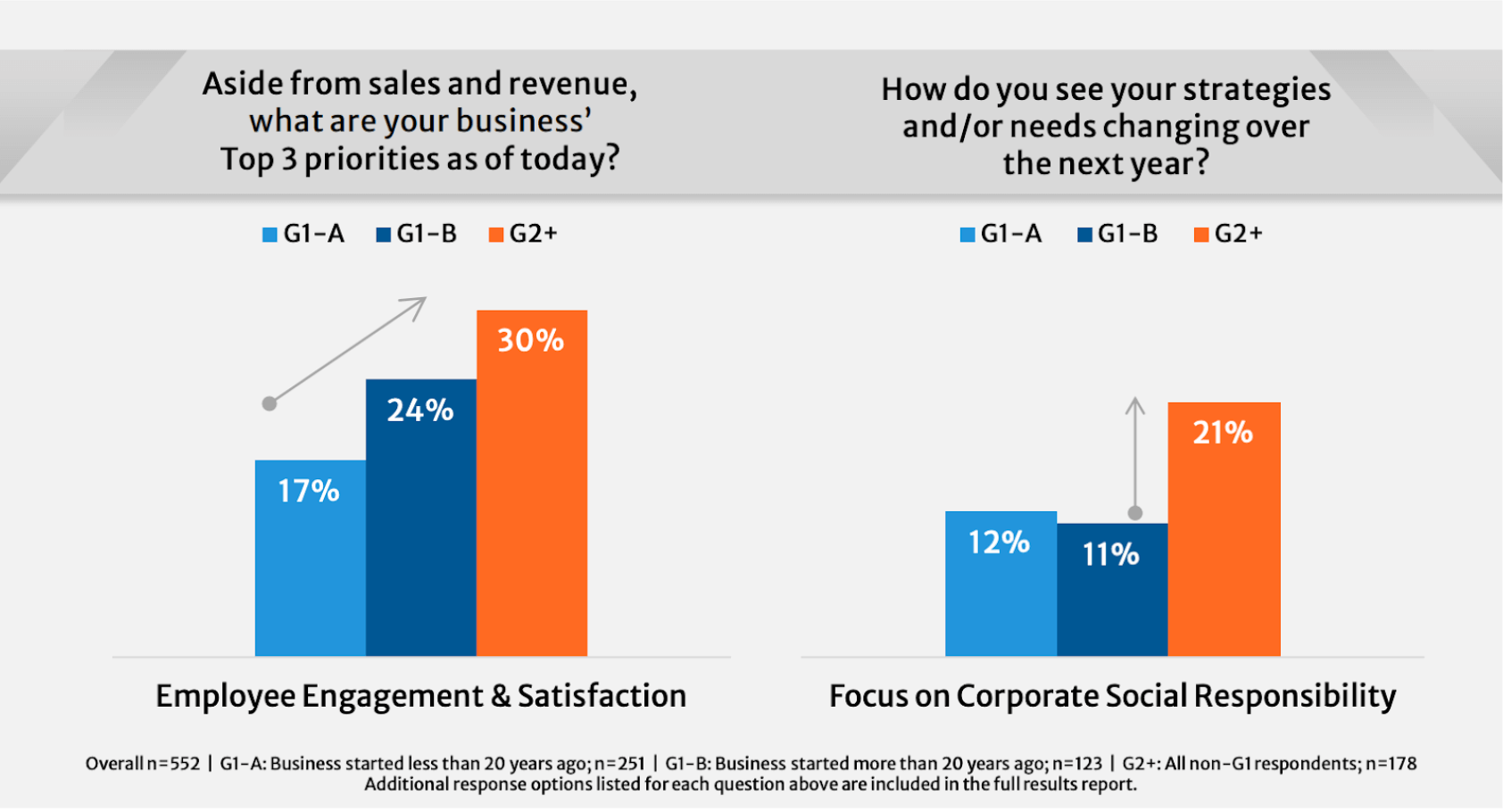Second-generation family business owners are redefining the way their companies operate. Stepping into their roles with fresh perspectives, they understand that creating a positive work environment is not only a moral imperative but also a smart business strategy. In this blog, we will explore how these entrepreneurs are making waves by prioritizing employee-centric initiatives such as fair pay, flexible work schedules, and personal meaning in their employees careers.
As second-generation family business owners assume leadership positions, they bring with them a profound understanding of the importance of employees. They appreciate that the business’s success is intimately tied to the well-being and engagement of their workforce.

Here are three key initiatives they are championing:
1. Fair Pay
One of the most significant shifts in family businesses led by second-generation owners is a renewed commitment to fair pay. They recognize that offering competitive and transparent compensation packages is vital for attracting and retaining top talent.
- Transparency: Many second-generation owners are keen on establishing transparent salary structures, providing employees with a clear understanding of how their pay is determined. This transparency builds trust and motivates employees to perform at their best.
- Market Competitive Salaries: Fair pay also involves offering salaries that are competitive in the market. This helps businesses remain attractive to skilled professionals who might otherwise seek employment elsewhere.
- Performance bonuses: Individual recognition incentives encourage employees to excel in their roles and contribute to the company’s success, creating a win-win situation for both the employees and the business.
2. Flexible Work Schedules
Embracing the changing dynamics of the modern workplace, second-generation family business owners are adopting flexible work schedules. They understand that work is not their employees’ sole responsibility, and they want to accommodate their employees’ needs for work-life balance.
- Flexible Work Schedules: Flexibility in work schedules allows employees to manage their work-life balance better and, in today’s market, is crucial for retaining employees and ensuring they stay motivated and productive.
- Remote Work Options: In light of technological advancements, remote work is increasingly becoming a viable option. Second-generation owners are capitalizing on this trend, offering employees the flexibility to work from home or other remote locations.
- Employee Satisfaction: Employees who can choose when and where they work tend to be more satisfied, leading to increased engagement, creativity, and loyalty.
3. Personal Meaning in Careers
Second-generation family business owners recognize that today’s employees seek more than just a paycheck – they desire personal meaning in their careers. These owners are actively working to align their business values with those of their workforce.
- Shared Values: They aim to create a workplace where employees feel their values are in harmony with the company’s mission and vision. This alignment provides a sense of purpose and fulfillment in their work.
- Professional Development: Personal meaning is also achieved through professional growth opportunities. Second-generation owners often invest in training and development programs to help employees feel more connected to their career paths.
- Employee Retention and Productivity: When employees find personal meaning in their careers, they are more likely to stay with the company long-term. They are also more motivated, productive, and innovative in their roles.
Second-generation family business owners are at the forefront of a transformative shift in the way workplaces are managed. By focusing on initiatives like fair pay, flexible work schedules, and personal meaning in careers, they are not only creating better work environments but also strengthening their businesses brand. These strategies attract and retain top talent, improve employee engagement, and foster innovation, ultimately driving long-term success for both the family businesses and their valued employees. As they continue to champion these employee-centric initiatives, they are setting a positive example for the business world at large, emphasizing the need to prioritize the well-being and aspirations of the workforce in the pursuit of sustainable growth.








